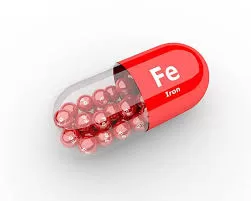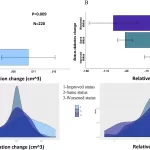University of Minnesota Medical School Research Highlights Importance of Iron in Pediatric HIV Care
A groundbreaking study from the University of Minnesota Medical School has revealed that iron supplementation could play a crucial role in optimizing brain development for children living with human immunodeficiency virus (HIV) in sub-Saharan Africa. Published in Lancet HIV, the research challenges the longstanding caution surrounding iron supplementation in this vulnerable population, suggesting that the benefits may far outweigh the previously perceived risks.
Historically, iron has often been withheld from children with HIV due to concerns that it might increase infection risk. However, the findings from this recent study indicate otherwise. “With the success and widespread availability of antiretroviral therapy (ART), children with HIV in sub-Saharan Africa are living longer, and optimizing their brain development is a new public health imperative,” stated Sarah Cusick, PhD, associate professor at the University of Minnesota Medical School and a member of the Masonic Institute for the Developing Brain.
The study, conducted between May 2018 and November 2019, involved 200 children with HIV and anemia who had been on ART for at least six months. Participants were randomly assigned to receive either iron supplements or a placebo over a three-month period. The results were promising: children who received iron exhibited significantly higher hemoglobin concentrations and better indicators of iron nutrition compared to those who received the placebo. Notably, the researchers found no evidence of increased risk of infection among those receiving iron supplements.
Dr. Cusick emphasized the need for further research to explore the long-term effects of iron supplementation on brain development and infection risk. “These findings pave the way for future research examining iron’s role in neurodevelopmental outcomes in children with HIV,” she remarked.
The study was funded by Minnesota Masonic Charities, the Department of Pediatrics at the University of Minnesota Medical School, the Hennepin Healthcare Research Institute, and the National Institutes of Health.
As the landscape of pediatric HIV care continues to evolve, this research underscores the importance of reconsidering nutritional strategies, like iron supplementation, to enhance the quality of life and development for children living with HIV in resource-limited settings.











